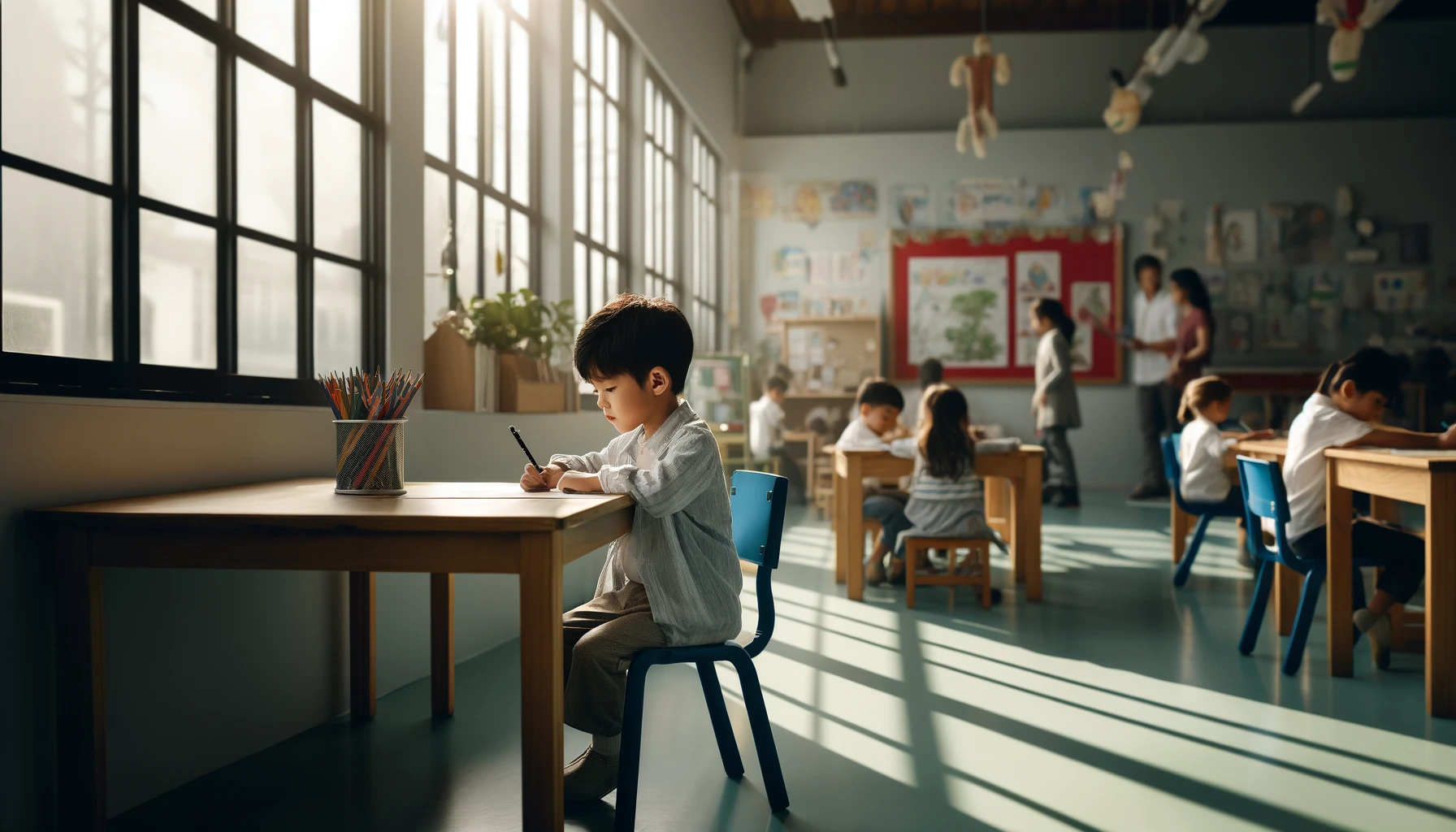Every child has their own unique qualities, not just in their appearance or preferences, but also in how they interact with the world. Some children naturally choose quiet and alone time., while others thrive on social interaction and enjoy being around people. Having a deep understanding of the social learning dynamics of each personality type is essential for ensuring the success and well-being of your introverted or extroverted child in their academic journey. This guide offers valuable insights and effective strategies that cater to different personality types, guaranteeing that your child maximises their educational experience.
Supporting Your Introvert Child’s Success in the Classroom

Introverted children often seek comfort in being alone and think carefully before speaking. Adapting approaches to fit a child’s needs is crucial for parents and educators in the bustling environment of a typical classroom.
Establish an Environment Conducive to Learning: Quiet and calm environments are ideal for maximising the performance of introverted children. Advocate for the inclusion of quiet spaces or designated breaks in your child’s school environment, allowing introverted students to recharge and find solace from the constant social stimulation.
Promote Small Group Interactions: Although introverts may feel less comfortable in big group activities, they often excel in smaller, more intimate settings. Engage in conversations with teachers regarding the organisation of students into smaller groups for projects, as this approach can create a more conducive environment for introverted children to feel at ease and express themselves.
Emphasise Personal Interaction: Children who are more introverted tend to feel more comfortable and at ease when engaging in one-on-one conversations. Encourage teachers to dedicate one-on-one time with your child, creating a safe space for them to freely express themselves without the added pressure of a larger audience.
Supporting Your Extrovert Child’s Success in School

Children who are extroverted tend to thrive in social situations, often displaying high levels of energy and a preference for working collaboratively in groups. They may, however, feel frustrated in excessively structured or quiet academic environments.
Here’s a guide to maximising their school experience:
Encourage Group Learning: Outgoing children flourish in environments that foster interaction. Promote the use of group work and collaborative projects as effective learning strategies, enabling extroverts to actively participate and connect with the material.
Harness Their Enthusiasm Effectively: At times, children who are more outgoing may come across as disruptive because of their abundant energy and desire for social engagement. Collaborate with teachers to discover constructive channels for this enthusiasm, such as taking on leadership positions in the classroom or engaging in tasks that involve assisting others.
Promote Reflective Thinking: Although extroverts tend to be prompt and enthusiastic in their responses, they can also benefit from activities that encourage thoughtful contemplation.
Encourage teachers to incorporate activities that prompt students to pause and reflect before responding, fostering a healthy equilibrium between their exuberance and deliberate participation.
Strategies for Parents

Both introverted and extroverted children can thrive with a well-rounded approach that addresses their social learning needs. There are various strategies that teachers and parents can utilise to ensure that every child can thrive in the learning environment.
Gain a thorough understanding of the unique needs of each child: Effective communication between parents and teachers is crucial in identifying a child’s needs at an early stage. Having a clear understanding of a child’s personality type can greatly enhance their educational journey.
Adaptable Learning Environments: Schools that provide adaptable learning environments can cater to the needs of both introverts and extroverts. One way to enhance the learning environment is by making adjustments to the classroom layout, daily structure, and activity choices.
Effective Teaching Strategies: Implement teaching methods that encompass a variety of approaches, such as group and individual projects, verbal and written communication, and tasks that promote both active engagement and reflection.
Gold Star Education: Your Trusted Ally for Academic Achievement
At Gold Star Education, we pride ourselves on being the top education consultant in Jakarta. We have a deep understanding that every child is one-of-a-kind. We provide tailored consulting services to assist parents in selecting schools and educational approaches that align perfectly with their child’s unique personality, whether they lean towards introversion or extroversion.
To learn more about how we can support your child’s educational journey, please visit our website at https://goldstareducation.com/. Our team of professionals is dedicated to offering personalised support and guidance to address the unique requirements of each student.
Assisting your child, whether they are introverted or extroverted, to excel in school involves comprehending their unique requirements and customising the learning environment to cater to their needs. With the proper guidance and effective tactics, every student can have a rewarding and successful academic journey.






0 responses on "Social Learning Dynamics: Empowering Your Introverted or Extroverted Child to Thrive in School"